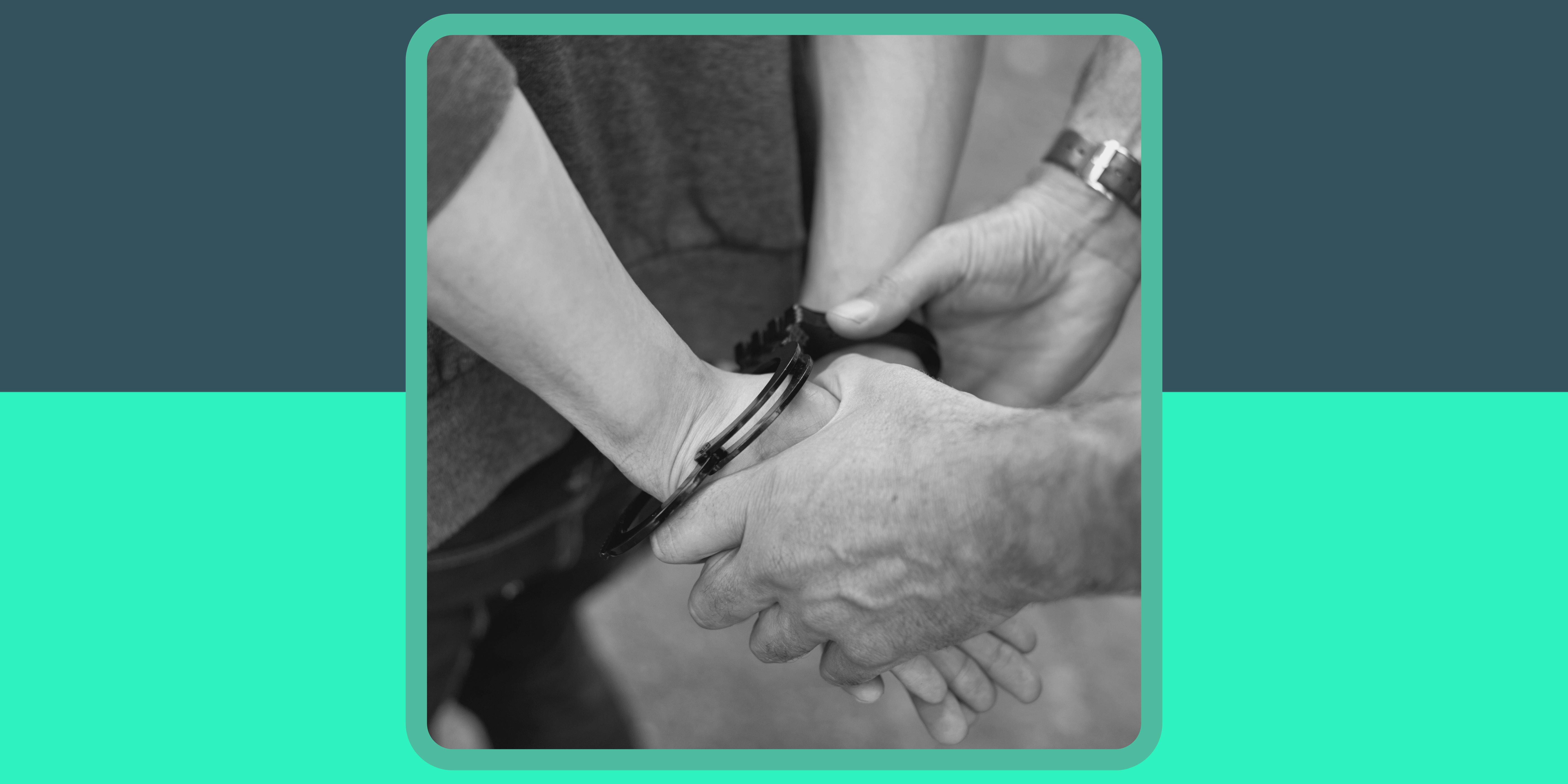What Is Courtsiding In Sports?
Courtsiding is to be in the crowd at a sports event, and to relay information (usually the score) to other people, either gamblers or an organisation or syndicate facilitating gambling, regarding the game or match.
If this information can be transmitted more quickly than the bookies can receive it and update their odds, this allows the gambler to gain an advantage over the bookie, and either make a guaranteed profit, or benefit from odds that are far more favourable than they should be.
The potential profits can be huge, given the sheer number of sporting events that take place.
Businesses have even sprung up exclusively trading on this basis, with full time (and often quite well-paid) employees dedicated to following a sport around the world, transmitting data back to their bosses.
So how does courtsiding work, and why is it so controversial? We’ll take you through everything you might need - or just want - to know.
Why Does Courtsiding Still Work?
You might be wondering how, in the age of worldwide instant communication, it’s possible to gain an advantage by being physically present at a sporting event. Surely the bookies can receive data just as quickly from the official scoring as a courtsider can send it?
Well, not quite. Even with modern technology, there’s always a small delay in the official scores being updated and transmitted to the bookies, and for the bookies themselves to update their odds.
This can also be exaggerated in certain sports, like tennis, where an umpire might have to wait for a player’s challenge to be resolved, or even get up to examine a mark on the court themselves to decide on the outcome of a point.
When this delay comes on a particularly significant point or score - for example a break point in tennis - this can have a big influence on the eventual outcome of the match, and so result in a drastic change to the odds. In the few seconds between the point being decided and the bookie’s odds updating, there are substantial profits to be made.
How Does Courtsiding Vary Between Sports?

Tennis
The term ‘courtsiding’ comes from tennis, and it’s tennis where courtsiding has been most notorious.
As there are so many points in a match, and tennis matches have particular potential for a single moment to be a major turning point in the match, tennis is probably the sport that offers the greatest chances of sizeable profits for courtsiders.
Furthermore, a lot of lower level matches aren’t televised, meaning that someone physically present and able to see useful information other than the score (for example, if a player shows signs of being injured, or that they might be considering retiring from the match) has an even greater advantage over a bookie that receives no information other than the scoreline.
Courtsiders will usually have specialised devices hidden on their person (or even sewn into their clothing) to allow them to indicate the winner of each point.
This device is typically a modified mobile phone with two buttons, one for each player, so that the courtsider can use it by touch.
A skilled courtsider must be able to press the relevant button with great subtlety, while applauding or cheering for the winner of the point, as their continuing career depends on not being spotted by officials at the match.
Football
Courtsiding isn’t quite so common in other sports, but it does still happen. In football, for example, the total goals market provides an opportunity for instant profits if a bettor is quick enough off the mark.
As an illustration, imagine a football match where the score is currently 1 - 0, meaning that the total goals market of ‘Over 1.5 goals’ is still open to bet on.
When a second goal is scored, the bettor could immediately place a bet that the total goals will be over 1.5 before the market is suspended, making themselves a guaranteed profit.
Bookies are, naturally, keen to prevent this. In-play bets often have a delay of a few seconds before they go through, making it much more difficult to place a bet quickly enough to take advantage of having live information, and they’ll suspend certain markets if a goal looks likely.
There have also been reports of stadiums using data blocking technology to prevent people betting live from the match, or from passing information to others.
Nonetheless, there are people managing to make good money from courtsiding in football.
By focusing on lower-league matches, in less professional grounds with smaller crowds, courtsiders can often make a very good living from courtsiding (also known as pitch-siding in this context) at football matches.
Other sports
As you might imagine, wherever courtsiding might offer an advantage to a gambler, there are large numbers of people looking to take it.
Cricket has been particularly hit by courtsiding; after being caught by Cricket South Africa, one spectator openly reported having made almost £4,000,000 from pitch-siding in his career.
In horse racing, meanwhile, drones have become commonplace above races, with the footage streamed worldwide to bettors, allowing them to enjoy a split-second advantage over normal coverage and place bets accordingly.
Is Courtsiding Legal?
For the most part, yes, courtsiding is legal. In the UK, the Gambling Commission has confirmed that courtsiding is not an offence, and it’s also considered perfectly legal in the USA.
In Australia, however, the legal situation is less clear. It’s been claimed that courtsiding can be considered an offence in the state of Victoria, where law prohibits ‘corrupting the betting outcome of a match’ - even though courtsiding does not have any effect on the outcome of a match.
However, even where courtsiding is definitely legal, it is nonetheless against the terms and conditions of a ticket to the sporting event in question, and anyone caught courtsiding will be ejected from the stadium and probably banned from attending future events for a significant period of time.
It’s also against a bookie’s terms and conditions, and if a bookie can detect a pattern of betting indicative of courtsiding (or taking advantage of information from courtsiders), they’re extremely likely to kick you off their site.
Why Do Bookies And Sporting Events Dislike Courtsiding?
When it comes to bookies, it’s pretty obvious why they don’t like courtsiding - it loses them money. Anything that gives a gambler an ‘unfair’ advantage is considered a breach of their terms and conditions.
The alternative is to use exchange sites, such as Betfair or Matchbook, which allow you to place bets against other bettors, rather than a bookie.
The downside of this is that it feels like much more of an ethical grey area - instead of taking a small chunk of a bookie’s profits, you’re making money from another person’s loss due to critical information you possessed that they didn’t have access to.
As for sporting events and organisations, their reasoning is based on the fact that bookies pay for their scoring data, and courtsiding undermines its value.
If a bookie is paying to receive up to date scores from, say, Wimbledon, and someone in the crowd is transmitting that data much more quickly to a betting syndicate, the bookie might be less inclined to continue to buy from the event, and may consider paying their own scouts instead.
It’s therefore firmly in the interests of sporting arenas and organisations to crack down on courtsiders as far as possible. Match officials keep an eye out for anybody behaving suspiciously, and will notice if certain individuals are turning up at every single match. Professional courtsiders tend to find, therefore, that their career cannot continue indefinitely.
Notable Instances of Courtsiding

One of the best known cases of courtsiding was at the 2014 Australian Open, when a British professional courtsider, Daniel Dobson, was not only caught but arrested and handcuffed as he was escorted from the match at Melbourne Park.
He’d been employed by a British company, Sporting Data, to travel the world watching live sports, and using a device sewn into his shorts to transmit live data back to his employers. Although he was aware that what he was doing broke the terms of his ticket, he certainly never expected to be arrested or charged with a crime.
It seems that the police themselves didn’t fully understand the legality of what Dobson had been doing either - he was charged under the aforementioned Victoria state law prohibiting ‘corrupting the betting outcome of a match’, but a couple of months later the charges were dropped, and nothing more came of the case.
Sports organisations are quick to claim that courtsiders are also likely to be involved in match-fixing, which is of course completely illegal - but in truth the two are very different, and there doesn’t appear to be any evidence that courtsiders are typically involved in match-fixing as well.
Occasionally, even players have been caught courtsiding - and for a player to be involved is much more serious. In 2020, the Spanish tennis player Gerard Joseph Platero Rodriguez was suspended for four years and fined $15,000 for several offences, including courtsiding (presumably not during his own matches!).
As a player, he was prohibited from betting on tennis altogether, so having placed 75 online bets on tennis within a single year, he was seriously in breach of the Tennis Anti-Corruption Program even before courtsiding was factored in.
Will Courtsiding Continue In The Future?
It’s difficult to say. As technology improves, the delays in official scores being transmitted will reduce, and it’ll become easier for both bookies and sporting venues to detect and impede courtsiders, all of which will make it increasingly difficult for them to operate.
On the other hand, improvements in technology can benefit courtsiders too, as demonstrated by the syndicates that have started flying drones over racecourses.
Some companies do appear to have pulled out of courtsiding in recent years, especially after the 2014 arrest at the Australian Open, not wanting to risk getting on the wrong side of the law.
However, those who pay attention to the in-play markets on betting exchanges still report seeing odds movements that are strongly suggestive of courtsiding, indicating that the practice is still widespread.
As long as there is a financial advantage to be gained from courtsiding, it’s likely to continue, regardless of its legal status. However, given its murky history and uncertain future, you’re probably better off considering other means of making money. Matched Betting offers guaranteed profits - and if you fancy giving it a go, you can sign up for our free trial to make your first £40 completely free of charge!
Updated: 24 Dec 2024
The Author
Stephanie is a published author and, having taken up Matched Betting fairly recently, she knows exactly how beginners feel when they first start Matched Betting. She loves breaking down complex subjects in straightforward terms to make them accessible to newcomers, and to speed them on their way to making their first profits.

